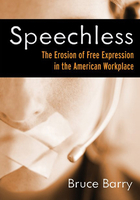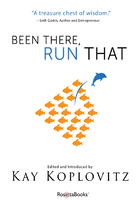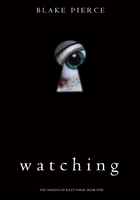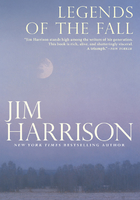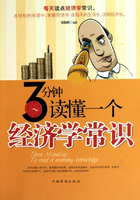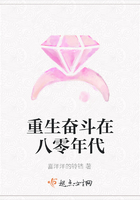Optimize Your Health:
A Practical Action Plan
Dr. Hans Selye, the physician who conducted the pioneering research about “biological stress,” apologized after he retired for making a serious mistake. In his autobiography, he confessed that “stress” was the wrong term. He said he should have called his research findings the “strain syndrome.”[1]
The widespread belief about jobs having harmful stress is an artificial “consensus reality.” Articles, books, and workshops about stress, while well-intentioned, sustain an illusion that something called “stress” is constantly assaulting and harming us.[2]
The difference in meaning between stress and strain is an example of how our minds can put up barriers or build bridges to resiliency. What most people call stress is really an internal, physical feeling of anxiety or strain that they don't like. This is not just semantics. Stress is the external pressure, strain is the internal effect.
One consequence of false beliefs about stress is that many employees have been misled into blaming their working conditions for their feelings of distress and do not try to develop resiliency strengths. Your ability to hold up under pressure is strengthened when you understand that unpleasant strains experienced at work or in your private life are your personal, subjective reactions. In a high-pressure job, you can choose to cope well with the strains and work with strength, or you can allow yourself to react like a weak, helpless victim.
The ability of our minds to observe what is happening and then create choices for effective responding is what makes humans different from animals and makes modern humans different from our ancestors. Our minds and attitudes can convert threats into challenges that energize us in healthy ways.
We Differ in How Much Strain We Can Handle
Human beings vary widely in how much weight they can lift. American weightlifter Shane Hammon has lifted over 1,000 pounds, but an elderly person might not be able to lift 10. Similarly, people vary widely in how much strain they can handle. A police lieutenant working the night shift in a suburb of Los Angeles, told me his job is boring. “It's been fourteen years of the same old thing,” he said. “Every night it's convenience store holdups, auto accidents, break-ins, suicide threats, bar fights, drug sales, gang shootings, family disputes….It's the same boring thing every night. I'm thinking of taking early retirement to do my photography hobby full-time. I have my own darkroom at home. That would excite me.”
Selye studied the physiology of “being sick.” He described a living creature's physiological responses to sustained, biologically overtaxing demands as a three-stage General Adaptation Syndrome:[3]
the Alarm Reaction
the Stage of Resistance
the Stage of Exhaustion
The Alarm Reaction is our emergency alert system. It is the fight or flight response that helped our ancestors survive in hostile environments where predators or enemies might approach unnoticed and suddenly attack.
When you feel anger or fright, hormones from the adrenal glands instantly prepare your body for emergency action. Your blood sugar becomes elevated, and your heart rate speeds up to pump blood to your muscles for instant fighting or a short burst of running. Your red blood cells become “sticky” to increase clotting if you are wounded. The pupils in your eyes widen, you breathe harder and faster, and you perspire. At the same time, the activities of the parasympathetic nervous system, the “repair and heal” system, are suppressed. Immune-system functions decrease and digestion slows down.
When people feel constantly threatened, angry, or anxious, their sympathetic nervous system keeps them in an agitated condition of emergency arousal. If sympathetic nervous system arousal continues unabated for weeks and months, diseases of adaptation develop—high blood pressure, heart attacks, strokes, bleeding ulcers, and cancer—leading to premature death, if not reversed.
Events may trigger an emergency response and always should. We need to have a physiological emergency response for getting us out of a burning building or carrying a child through floodwaters. But in modern life, the fight or flight biological heritage that saved our ancestors is shortening lives. Researchers in Finland found that 22,430 public-sector employees who kept their jobs after major layoffs and downsizing were sick more often and that their death rate from cardiovascular disease doubled.[4]
The challenge for us in a rapidly changing, fast-paced world is to learn how to intersperse periods of sympathetic nervous system arousal with periods of parasympathetic, repairing and healing activities. To remain healthy, your body needs times when your heart rate slows down, digestive processes increase, and the complex activities of your immune system increase. Parasympathetic activity is a physiological process that can be influenced indirectly, but not directly. It functions best when you leave it alone and allow it to work without your conscious efforts.
Your Optimal Health Plan
The Optimal Health Plan that follows shows how to retain psychological control and take advantage of new information about mind-body connections that increase health and wellbeing.[5] When you use this Optimal Health Plan, you will experience many benefits. You will manage your emotional reactions in emotionally competent ways, gain control over events in your life that affect you, and be able to create a positive, supportive, healthy environment for yourself.
Part One: Write Two Lists:
“What is Difficult for Me?”
Make a list of six or seven things that you feel irritated, upset, or distressed about. Ask and answer questions such as
What pressures am I feeling?
How is my work and my life different than it was a year ago?
What is difficult for me now and what difficulties am I expecting?
What feels distressing to me?
Take your time and be thorough. Write descriptive phrases. During a resiliency seminar, a group of federal civil-service employees working for the US Navy listed these pressures:
Our work group has been downsized by 30%, but we are still expected to do the same amount of work as before.
We've heard that the top brass might downsize us again.
Our operating budget has been cut twice.
The Department of Defense replaced our old computer system and software program with new computers and new software that work slower than the old system. It's exhausting trying to get more work done with a software program that has increased the time it takes to do our work.
Because we have fewer employees and problems with the new computer system, delays have increased angry phone calls and urgent demands from high-ranking officers. Working on their emergencies takes time away from getting our assigned work done.
We must also take time away from our assigned work, to keep hourly, detailed, written records of our job activities, because the Department of Defense is considering “outsourcing” our entire unit to an outside contractor.
We feel trapped. In the past, pay increases did not keep up with cost-of-living increases, and now we hear that cost-of-living pay increases will be eliminated and changed over to a merit pay system. We're losing ground compared to pay levels in private industry. Many of us are too old to walk away from our retirement packages to start a new career elsewhere, and we're too young to qualify for early retirement.
We're worried about the effects of all this stress on our health.
Notice that these workers listed as a stressor worrying about the effects of many job stresses. During the workshop, they felt more emotionally free and empowered when they learned about the false consensus reality about “job stress.” Our discussion about who is responsible for how a person reacts to life events led most of the group to stop blaming their commanders and the Department of Defense for their reactions to all the pressures, and start accepting responsibility for their reactions.[6]
“I feel…”
The next step is to talk or write about how you feel about the items you listed. During difficult times, an important resiliency step is being able to express your feelings in healthy ways.
You can't make feelings go away, but you can move through them. As shown in the diagram in chapter 1, resilient people express what they feel upset about as a step toward regaining a positive frame of mind needed for bouncing back. If you were raised to be a “good child,” to always be happy and never complain, writing such a list may be hard to do. If you work in a “macho” occupation such as construction, law enforcement, or fire fighting, there may be a group norm that regards talking or writing about feelings as a sign of weakness. Expressing your feelings, however, is as important as the maintenance work you know you must do on equipment your life depends on.
A few years ago, a group of older professional workers lost their jobs because of corporate downsizing and had not been successful in becoming re-employed after a year of searching. Psychologist James Pennebaker and his associates had them write about their emotions for twenty minutes each day for two weeks. Eight months after the writing sessions, two thirds of the participants had full-time or satisfactory part-time employment. During that same time period, less than one third of a comparable, non-writing group found employment.
Pennebaker reports that all the people in the group who wrote about their feelings said they wished they had written about their feelings sooner. They realized they had not done well in job interviews during the previous year because they had not handled their feelings well. Research with many other groups has documented improved coping abilities when people under pressure write about their feelings regularly. The better you become at being able to recognize, verbalize, and manage your feelings, the less you will be vulnerable to losing emotional control or developing cardiovascular illnesses.[7]
Now List Your Positive Experiences
After listing and writing about negative, distressing challenges, switch over and make a second list of positive experiences you enjoy. List activities that revitalize and invigorate you. Ask yourself these questions:
What do I have fun doing? What do I get enthusiastic about?
What would I like to do that I keep putting off?
Who do I enjoy sharing good experiences with?
When do I sleep best at night?
What positive aspects of my life am I ignoring?
Part Two: Take Action
Decide to Cope Well with Challenges
After you've made your lists about what drains you and what revitalizes you, you are at a choice point. Are you going to take action or not take action to reduce your distressing, energy-draining experiences and increase pleasant, revitalizing experiences? Here's why this question is important:
In the 1960s, research psychologists began to investigate people who coped well with life's difficulties and were more stress resistant than others. Richard Lazarus discovered that people who cope well focus outward to problem solve their difficulties. Julian Rotter (covered in chapter 3) found that self-motivated people who feel capable of taking effective action when threatened hold up much better than people who have a fatalistic attitude and believe their lives are controlled by forces out of their control.
In the 1970s, some psychologists began to study the connection between internal, locus of control attitudes and fewer stress-related health problems. In 1975, University of Chicago Professor Salvatore Maddi began a twelve-year study of 450 male and female managers and executives at Illinois Bell Telephone, a subsidiary of the American Telephone and Telegraph company (AT&T). During the study, the US Department of Justice prosecuted an antitrust lawsuit that led to breaking up the AT&T corporation into seven “baby Bells.”
These were trying times for Bell system managers and executives. Shock waves rippled through the Bell system. Thousands of stockholders panicked. Retirees, widows, and investors with large holdings in trusts and mutual funds flooded Bell offices with phone calls and letters. Illinois Bell was downsized from 26,000 to 14,000 employees.[8]
The Maddi research team found that two thirds of the executives and managers in the study showed signs of the General Adaptation Syndrome. They had heart attacks, strokes, gastrointestinal ulcers, and many illnesses related to immune system depletion, such as arthritis and cancer. This group also had migraine headaches, anxiety attacks, depression, alcoholism, substance abuse, angry tantrums, and a few suicides. Many reported feeling confused, fearful, worried, distrustful of management, overwhelmed, powerless, low energy, and pessimistic. In the workplace. they had more absenteeism, received poor performance reviews, and some demotions.
The other one third in the study, however, did not show debilitating effects—just the opposite. They remained healthy and happy, felt enlivened, developed better relationships at home and at work, had excellent performance reviews, and received promotions. This group, called the “hardy” ones, thrived in the chaos that was distressing and ruinous for others. They were more than stress resistant; they seemed to be immune to the same workplace conditions experienced as stressful, destructive, and harmful by their co-workers.
The Illinois Bell researchers found that the hardy executives and managers had three qualities:
They made an emotional commitment to do their best to successfully handle the ongoing events, and to help others as well.
They believed they could influence the outcomes and actively worked to reach specific goals. This gave them a feeling of being in control of their job assignments and their part of the action.
They felt energized and challenged to solve the problems and cope effectively with every difficulty.[9]
The hardiness research by Maddi and his associates confirmed Rotter's original research and what many other psychologists have found: people who feel in control hold up much better and remain healthier in high-pressure, disruptive change. Your Optimal Health Plan emphasizes ways to gain control of how you respond to pressures, extreme change, and challenges.
Decrease Negative Experiences
Look at your list of negative experiences. Pick one item and create an action plan to feel less vulnerable and more in control. Decide to find a way to decrease the negative effect it has on you. Ask questions such as
What if I ignored this? What if I avoided contact?
Could I do something about this? What could I do to change how it bothers me?
Can I make it go away? Can I get it out of my life?
If you feel micromanaged by your boss, learn how to deal effectively with managers who micromanage in ways that impair worker effectiveness.[10]
If negative talk in the lunch room at work is getting you down, you could go for a walk instead of listening to all the complaining. If you feel distressed seeing pictures of wounded and dead people on evening television news broadcasts, turn off the TV set and listen to music.
Ask yourself: If I can't avoid it, change it, or make it go away, what if I changed my response to it? What if I decided to stop letting it bother me?
You feel strained only by what you emotionally and physically attempt to deal with. Disengaging yourself from some things around you conserves your resiliency energy for more important challenges.
To gain control over your automatic reactions and develop choices for action, become an observer. If you pause to observe how you typically react, you can create choices for responding in a different way.
How do you do this? Watch with curiosity the ways that you react to others. What is typical for you? Become a witness, as though you are recording a dramatic play on a videotape. Replay the tape and observe your role. Then, as the scriptwriter, come up with several possibilities for responding differently.
Being able to pause and observe before you take action is an essential part of this strategy. Develop several choices about how to respond, then choose one that you feel would let you gain control, feel less vulnerable, and lead to an outcome that you would feel good about.
Once you feel that you have made good progress with one item on your list, select another. Don't try to do them all at once. If you do, it will be like making a long list of New Year's resolutions and then noticing in March that you have not accomplished any of them.
Revise Your Theme Song
A clue that you have set up the dramas in your life as being beyond your control is when you believe that your life will improve when other people change how they talk, think, and act. I have heard this assertion stated so many times, I call it “The Theme Song of the Human Race.” The chorus of the song is “If only other people would change, things would be much better for me.”
This is a true statement, of course. I agree that if only certain people would change the way they think, talk, and act, you could feel less distress and more happiness. No question about that.
But what are the probabilities that others are going to voluntarily change their ways of talking and acting so that your life will be better?
The answers I get in my workshops are “Zero.” “None.” “Zip.”
The point here is that the Theme Song is correct, but it also empowers difficult people to control you. If you blame others for causing your feelings of distress and conclude that improvement will come only when they change, you are locking yourself into a helpless victim pattern.
So what can be done? I start by owning the problem I'm experiencing. If you feel off-balance, vulnerable, or frustrated when others act or talk in ways that you can't handle well, that's OK. This situation can open a path to learning new and better ways of responding.
The key to making your life better is to stop blaming others for triggering reactions in you that you don't like. The problem is not what others do; it is your reaction to what they do. Focus instead on learning better ways to respond. When you learn effective responses, your emotional strain is reduced.
Write a new theme song for yourself. The chorus may be something like “Everyone gets to do what they do, and I get to learn how to not let them bother me.” Each new verse will be for a specific challenge on your list.
If you feel upset by what others do or say, try seeing the situation as a test in the school of life. Look at it as an opportunity to learn about your blind spots. Appreciate chances to learn better ways of handling people who knock you off-balance emotionally.
Ask for Support
Can you ask for help when you need it? If you have always been the strong one in your family, it is all right to ask the family for help, emotional support, and encouragement. They will probably love you all the more. They may be glad to see you stop trying to be the strong one always in control.
Research into health and illness is leading to what is called a “biopsychosocial” model of health. Everything you think and feel has an effect on your physical health; the quality of your interactions with others has an effect on your physical health. As studied by psychologist Sheldon Cohen, social support can come to you in three ways:
Help with daily tasks, providing food and supplies, or financial assistance.
Advice, guidance, and problem solving.
Listening, caring, empathy, and reassurance.[11]
You recover better when you tell your family, a friend, or a support group what you are feeling. If you'd like them just to listen and not problem solve while you talk, let them know. If you want some suggestions and coaching on what to do, let them know that. A friend will listen, sympathize, and won't tell you not to feel what you are feeling. If you cry—and that may be helpful—he or she will wait until you are done.
If you feel overwhelmed and lack energy for handling the pressures, consider seeking professional help. Take this suggestion seriously. Anyone who tries to act as though he or she never feels upset or distressed is more fragile than people who admit they need counseling.
Increase Positive Experiences
Decreasing negative experiences is only half of your action plan. Increasing your positive experiences is actually more important than decreasing your negative ones. Pleasant, positive experiences revitalize you, boost your immunity to emotional toxicity, and give you more strength to sustain yourself in adverse circumstances. Whatever you choose to do, it's important that the activity completely absorbs you. Lose yourself in what you are doing and forget about all else.
Divide your list of activities for enhancing your health and well-being into active and passive. Active health enhancement includes physical activities such as jogging, bike riding, hiking, playing recreational sports, gardening, enjoying a hobby, playing a musical instrument, doing tai chi, qigong, yoga, or aerobic workouts.
Dozens of people who held up well under extreme pressure, in a variety of circumstances, were interviewed by psychiatrist William Glasser to find out how they avoided burnout. He found that most of them had a “positive addiction.” They had a favorite activity such as bike riding or jogging that they felt compelled to do.[12]
Pleasant, revitalizing emotional activities may include spending time with a close friend, taking children to places they enjoy, cooking a meal for someone you like, enjoying a family celebration, watching videotapes that make you laugh, or doing something special with a loved one. Cohen's research shows that people with a happy family life and lots of friends remain healthier than people with poor relationships. Anything you do playfully is revitalizing. Laughing is a powerful healer.
The healing and repairing processes in your body do their best work when you do nothing. Passive activities include sitting and listening to music with your eyes closed, meditating, getting a massage, relaxing in a hot tub or sauna, taking a nap, resting, or sitting outside doing nothing—all of this while keeping your mind silent and fully enjoying the sensations of the moment.
Use a Plan That Fits Your Nature
To increase your immune system activity, it helps to know your inborn predispositions. For example, do you tend to be introverted or extroverted? Socially extroverted people recover from setbacks best by talking with others. Physically extroverted people need intense physical stimulation and lots of action. Introverted people need time alone, away from others. Trying to use a recovery style incompatible with your inborn predisposition may strain you further.
Every individual's way of sustaining their health and energy must fit them. A woman I know sold her business, ended a relationship with a man, sold her home, moved to another state, and started a new career at lower pay. She stayed healthy because she knew she was at risk and took very good care of herself. She went for walks, took naps, got massages, spent time with good friends, wrote about her feelings in a personal journal, ate healthy foods, laughed a lot, got plenty of sleep, and held off starting a new career for a few months.
There are no rules on how to do it right. What one person says worked for him or her may not fit with what you need to do. You will have to experiment to discover what is best for you.
To create your customized plan
Look at your list of what revitalizes you.
Think of ways to repeat, increase, or have new positive experiences.
Develop a plan of action for increasing positive, revitalizing experiences.
Do what revitalizes and nourishes you. Do what renews you and lets you sleep better.
Factors Influencing Health and Well-Being
Some people live a lifestyle that almost seems designed to make them become ill or lead to shortening their lives.[13] The following list summarizes research findings about what people do who are less likely to develop illnesses. People who remain healthy under pressure
experience little distress in routine activities;
feel in control of their lives and capable of taking effective action about what upsets them;
draw action choices from a wide range of inner and external resources;
enjoy good relationships with family and friends;
know how they feel and can express feelings;
accept responsibility for their responses to what others do and say;
manage self-change well;
develop healthy lifestyle habits;
convert negative experiences into beneficial learning;
actively pursue positive, enjoyable experiences.[14]
Do your actions match this list? If so, congratulate yourself. If not, this list provides guidelines on what you need to work on.
A related factor to examine is your expectation about how long you think you will live. How long do people in your family expect to live? Do you have any old-timers? Many families do not.
Experts on longevity say that in optimal conditions, we humans can live for 110 to 120 years in good health. As medical care improves and people become smarter about how to sustain optimal health, the average length of life is increasing. Statistical predictions project that by the year 2030, there will be over one million people in the United States 100 years of age or over. Many will not be in nursing homes or assisted living facilities. Can you imagine yourself being one of them?[15]
Enjoy Strain Like a Good Workout
Notice that the Optimal Health Plan does not say to avoid pressure or strain. We know from Dr. Selye's research, that we need a moderate amount of strain to remain healthy. Selye called it “eustress” meaning “good stress.” Without periods of strain we lose strength and deteriorate. People confined to bed for long periods lose muscle tone. Astronauts lose bone mass and muscle strength during weeks aboard the International Space Station outside the strain of earth's gravity.
An optimal plan has you alternating the strains of intense work with periods of detachment, rest, and relaxation. Alternating strain with relaxation sustains your health and increases strength.[16]
To achieve deep relaxation, Dr. Herbert Benson suggests learning to stay relaxed while doing simple repetitive tasks or going for strolls. He also recommends taking long, slow, deep breaths to relax. With practice, you can use one deep breath to calm yourself quickly any time, any place.[17]
If driving to work and back puts you into rush hour traffic, relax and flow with the stops and surges. Expect a few drivers to try to gain a few seconds by squeezing in ahead of you when there is no space. Let them do that while you listen to relaxing music or audio books.
A young woman working at a copy center I've often been to looked more frazzled than usual one day. I asked her how things were going. She complained about how hectic her job was with no letup from all the impatient customers. I said “Here, I'll write you a prescription.”
I wrote “BREATHE” on one of her sticky notes and handed it to her. I said, “Place this on the side of the copy machine where you can see it while you are waiting for a job to finish. Stand quietly when you notice it. Mentally disengage from the action at the counter for a few moments. Take several slow, deep breaths. Count to five each time you inhale and exhale.”
The next time I came in she grinned and said “Your breathing prescription is super! I'm not worn out at the end of the day, the way I used to be.”
Few people breathe well. If you look at any group of people, most of their breathing is shallow—even people who drink from bottles of water because they know that keeping our cells hydrated slows aging and sustains energy. Humans can survive for up to five days without water, but less than five minutes without oxygen. Oxygenating your blood and cells is far more important than hydrating them. Breathe.
Summary
The science of resiliency includes these understandings:
You can increase your resiliency when you free your mind from the illusion of “stress.”
People differ in their perceptions, attitudes, and explanations about their circumstances. The least resilient people experience normal working conditions as hostile and harmful. The most resilient people experience the same working conditions as safe and enjoyable.
People differ in how much they feel able to take action to create an optimal environment for themselves. Some people who feel distressed by their circumstances do not believe that personal effort could make anything better. Others feel personally responsible for how well their lives go and that they can keep learning new ways to handle things better. They know that they can exercise some control over events and how they respond to events.
As biological creatures, we have automatic reflexes to perceived threats that trigger sympathetic nervous system responses. By knowing this and seeing why it is useful to understand your inborn survival biology, you can observe what triggers your emergency alarm reactions. You can ask yourself why you feel threatened and decide to accept responsibility for your reactions. The more you know about mind-body interactions, the more you can consciously choose to act in ways that sustain your health and energy.[18]
People differ in how much emotional and physiological strain is optimal. Some thrive in high levels of pressure and strain that would cause heart attacks, ulcers, and illnesses in others. Some people function best in low-pressure, tranquil circumstances that would be distressingly unstimulating and boring for others.
Optimal health isn't something you have to chase or work hard to develop. Optimal health is what you enjoy when you live in ways that don't harm your body and allow your body time to repair and heal. Long periods of emergency alert, autonomic nervous system arousal can lead to serious health problems if not interspersed with time for the parasympathetic nervous system to repair and heal. People differ in which activities are most useful for them.
Your Optimal Health Plan for decreasing distressing experiences and increasing revitalizing ones will prevent feelings of helplessness and hopelessness. As you become better and better at handling your emotional reactions in emotionally competent ways, you strengthen your emotional immunity to events that distress others and increase your resiliency.
As you become better at handling feelings such as anger, pessimism, and discouragement, you are less easily pulled off-balance by those feelings in others. If you don't handle your own feelings well, you can't handle being exposed to those feelings in others very well.
Keep in mind that time plays a part in this. Certain pressures can be changed today; others will take weeks and months. Some pleasant activities may take awhile to arrange.
The practical, Optimal Health Plan outlined in this chapter can bring you many benefits. It will reduce your unpleasant experiences and increase the kinds of positive experiences that can sustain your health and well-being a long, long time. And, as you will see in the next chapter, the enjoyment of many positive feelings also improves your problemsolving skills.
Resiliency Development Activities
If you'd like a job and a life with less strain, you can have it:
Create a personal plan to optimize your emotional and physical health. Do things to support your health and well-being in ways that are simple, easy, and natural for you.
Increase your feelings of control over how you respond to the external demands and activities that you choose to handle well.
Decide to free your mind from the widespread consensus reality about stress. Stress is only a concept. It's an abstract idea. Focus instead, on exactly what your ears hear and your eyes see.
Notice what triggers emotional reactions in you. Imagine yourself remaining relaxed, amused, or indifferent the next time.
Mentally rehearse your new, preferred response and notice how you feel.
Look forward to the next time a previous “stressor” occurs so that if it happens again, you can use your positive, resiliency response instead of feeling distressed or helpless.
Notice times when you enjoy mental and physical strains.
Pause after a period of strain to take several long, deep, relaxing breaths. Deep breathing should include exhaling fully. The strain/breathe/relax, strain/breathe/relax, strain/ breathe/relax sequence will have many beneficial effects.
At the end of each day, reflect on how good you feel about handling strains and challenges easily and naturally.
An additional benefit from handling pressure and change well is that you can help others cope well. You can do this by asking someone that you care about these two questions: “How are you feeling about what is happening?” and “What are you doing to take care of yourself?” When you ask these two questions and take time to listen, the people you care about will feel better and cope better. Do this the next chance you get and see what happens.
注释:
[1]Selye, Hans. The Stress of My Life: A Scientist's Memoirs, 2nd edition (New York: Van Nostrand Reinhold, 1979), p. 78.
[2]For a typical example of an article spreading the myth of stress, see: “Job Stress May Be Killing You.” Discover magazine, December 2003, p. 17.
[3]The General Adaptation Syndrome is described in many books. See: Selye, Hans. Stress of My Life.
[4]Vahtera, Jussi, et al. “Organizational Downsizing, Sickness Absence, and Mortality: A 10 Town Perspective Cohort Study.” British Medical Journal, February 23, 2004.
[5]Diener,Ed, Richard E. Luca, and Shigehiro Oishi. “Subjective Well-Being: The Science of Happiness and Life Satisfaction.” Handbook of Positive Psychology, C. R. Snyder and Shane J. Lopez, eds. (New York: Oxford University Press, 2002).
[6]Workshops conducted for US civil service personnel, Naval Air Station, Jacksonville, Florida, January, 2000.
[7]Smith, Joshua M., and James W. Pennebaker. “Sharing One's Story: Translating Emotional Experiences into Words as a Coping Tool.” Coping: The Psychology of What Works, C. R. Snyder, ed. (New York: Oxford Press, 1999).
[8]Illinois Bell story at www.BellSystemMemorial.com/att_divestiture.html (accessed September 18, 2003).
[9]Maddi, Salvatore R. and Susan C. Kobasa. The Hardy Executive: Health Under Stress (New York: Dow-Jones Irwin, 1984). For an update on the hardiness research, see: Maddi, Salvadore R. “The Story of Hardiness: Twenty Years of Theorizing, Research, and Practice.” Consulting Psychology Journal, 2002, Vol. 54, pp. 173–185. Online: www.PsychologyMatters.org/hardiness.html (accessed January, 2005).
[10]Chambers, Harry. My Way Or the Highway. (San Francisco: Berrett-Koehler, 2004). Contains excellent tips on how to handle a manager who micromanages.
[11]Cohen, Sheldon. “Social Relationships and Health,” in American Psychologist, November, 2004, Vol. 59, No. 8, pp. 676–684.
[12]Glasser, William. Positive Addiction (New York: Harper, 1976).
[13]Charnofsky, Stan. “Suicide by Lifestyle.” AHP Perspective, August/September, 2004, pp. 11–13. For one of the first comprehensive reports about lifestyle habits that shorten people's lives see: Matarazzo, Joseph. “Behavioral Health's Challenge to Academic, Scientific, and Professional Psychology.” American Psychologist, January, 1982, pp. 1–14. Also see: Siebert, Al. The Survivor Personality (New York: Perigee, 1996), p. 159.
[14]Seligman, Martin E. P., and Mihaly Csikszentmihalyi, eds. “Special Issue on Happiness, Excellence, and Optimal Human Functioning.” American Psychologist, January, 2000.
[15]“How to Live to Be 100.” Time magazine, August 30, 2004, pp. 40–48.
[16]“The Power of Rest: Revive Yourself by Doing Nothing.” Utne magazine feature stories, January–February, 2004, pp. 76–85.
[17]Benson, Herbert, and William Proctor. Beyond the Relaxation Response (New York: Berkley Publishing Group, 1994).
[18]Glasser, William. The Ten Axioms of Choice Theory.” Choice Theory: A New Psychology of Personal Freedom (New York: HarperCollins, 1998), pp. 332–336.

